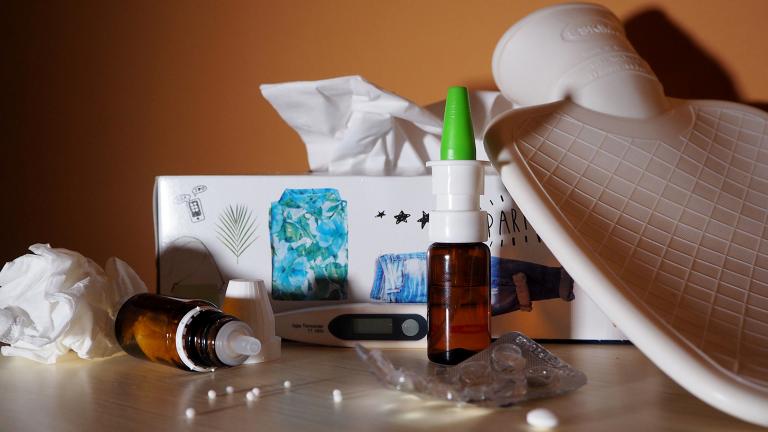Chicago’s air pollution levels are among the 25 worst in the country, according to the American Lung Association’s latest city rankings based on a study by the Environmental Protection Agency.
Chicago has been creeping up the list for a few years. In 2019, the city ranked number 18. Three years later, the levels of pollution landed the Windy City in the 16th spot.
Although pollution levels have been slowly improving, the ALA says Chicago has had more days of unhealthy air quality every year. Smog, or ozone, is produce when particles released during the burning of fossil fuels react to sunlight.
The list released by the ALA comes on the heels of Mayor Lori Lightfoot’s new plan to expand air pollution monitoring and cut greenhouse gases by 60%. The plan outlines five areas of improvement – lowering utility costs by expanding access to renewable energy, a new organic waste collection system, zero-emissions transportation, 100% renewable energy for city operations and investments to improve equity among communities experiencing racial disparities.
Anthony Moser of Neighbors for Environmental Justice says that if the city wants to reach its goals to reduce greenhouse gases by 60%, officials first need to figure out where greenhouse gases are coming from.
“You can’t reduce things that you aren’t measuring” said Moser.
Moser became one of the founding members of Neighbors for Environmental Justice after MAT Asphalt opened across the street from a neighborhood park without public notice. He points out that although the city wants 100% of their operations to be fueled by renewable energy, the plan does not take into account the emissions created by companies like MAT Asphalt, which works on city contracts.
Angela Tin, national senior director of clean air initiatives at the American Lung Association, says alternate modes of transportation offered in Chicago has led to very slow improvement.
Tin says that the city did not see a major reduction of pollution during the height of the pandemic when there was a reduced number of vehicles on the road, so it’s imperative that the city finds new fuel sources.
City officials were invited to appear but declined to discuss details of the plan until it is formally released.





